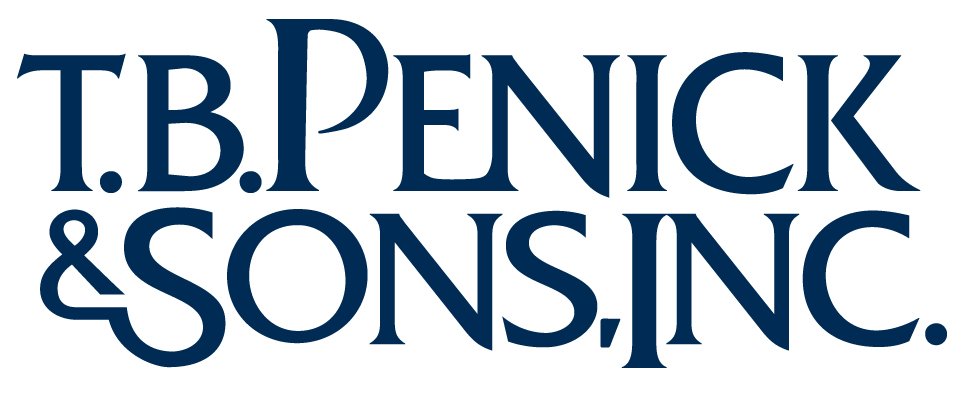Anti-Harassment Policy Adopted December 9, 2020
Introduction
The American Institute of Architects (AIA) and its members are committed to full compliance with all laws and regulations, to maintaining the highest ethical standards in the way we conduct our operations and activities, and to broadening equity, diversity, inclusion, and a culture of belonging to create a stronger profession.
This policy prohibits all harassing behavior (that is, unwelcome conduct) directed toward a person because of sex, pregnancy, childbirth or related medical conditions, race, color, religion, national origin, citizenship status, age, marital status, personal appearance, sexual orientation, gender identity or gender expression, family responsibilities, physical or mental disability, diverse ability (such as cognition, sensing, feeling, thinking, and social), political affiliation, or on the basis of any other protected characteristic under applicable federal, state, or local law. Such behavior may be reflected in a single incident or in multiple incidents, or in a pattern of conduct.
Who Is covered by the policy?
This policy applies to all AIA members, AIA employees, and others (such as speakers and vendors) in connection with AIA operations, while attending or engaged in AIA-hosted events or activities, or while at an AIA venue (such as at AIA’s offices).
Conduct occurring at the component level (for example, at component-sponsored events and meets, and on online platforms) should ordinarily be addressed under the component’s anti-harassment policy rather than this Policy. Members of the institute’s Office of General Counsel will nonetheless be available to respond to questions from component leaders and staff at [tona@aia.org], and should be contacted in all instances in which an AIA employee has been involved in the pertinent conduct.
Scope of the policy
1. Sexual and other harassment is offensive and violates this Policy even if it does not violate the law. If you are covered by the Policy and violate it, you will be subject to discipline, including possible disqualification from AIA Honors and Awards, exclusion from committees and other activities, or expulsion from AIA events.
2. Retaliation will not be tolerated. You may be disciplined if you are covered by this Policy and you retaliate against anyone (for example, for reporting harassment, providing information or otherwise assisting in an investigation under this Policy, or in response to discipline imposed under this Policy).
3. AIA encourages AIA members and others to report any conduct that violates this Policy so that the issue can be corrected promptly.
4. AIA also reserves the right to bar or remove any person from any AIA-hosted event or activity at any time in its sole discretion. This includes anyone behaving in a disorderly or offensive manner (whether in person, or by digital or other means), or otherwise failing to comply with this Policy.
Harassment
Harassment includes unwelcome conduct in a single incident or in multiple incidents, or in a pattern that creates an intimidating, disrespectful, offensive, or hostile environment.
AIA prohibits harassment on the basis of sex, pregnancy, childbirth or related medical conditions, diverse ability (such as cognition, sensing, feeling, thinking, social), race, color, religion, national origin, citizenship status, age, marital status, personal appearance, sexual orientation, gender identity or gender expression, family responsibilities, physical or mental disability, political affiliation, or on the basis of any other protected characteristic under applicable federal, state, or local law.
Prohibited harassment may include such things as epithets, slurs, derogatory comments, jokes or images, intimidation, negative stereotyping, ridiculing or demeaning comments, threats, assault or any physical interference with an individual’s normal activity or movement, harassing photography or recording, sustained disruption of talks or other events, and other conduct that the individual might reasonably find to be offensive.
Such conduct violates this Policy, even if it is not unlawful.
Sexual harassment
Sexual harassment includes unwelcome or offensive conduct based on sex, sexual orientation, self-identified or perceived sex, gender expression, gender identity and transgender status. The conduct may violate this Policy even if it is not motivated by sexual desire. It may be reflected in a single incident or in multiple incidents, or in a pattern of conduct.
Examples of sexual harassment
These are various types of sexual harassment, which are strictly prohibited:
Physical acts of a sexual nature, including unwanted touching of any type (such as unwelcome kissing or hugging).
Unwanted sexual advances or propositions.
Sexually oriented gestures, noises, remarks or jokes, or comments about a person’s sexuality (including sexual orientation or attraction), or the sexual experience of that person or any other person.
Sex stereotyping, that is, viewing conduct or traits as inappropriate because they may not conform to other people's ideas about how somebody of a particular sex should act or look. (This includes stereotyping based on gender identity and expression, gender orientation, and/or transgender status.)
Sexual displays or publications (including digital publications or content), such as displaying pictures, posters, calendars, or other materials that are sexually demeaning or pornographic.
Hostile actions against people because of their sex, sexual orientation, gender identity or transgender status.
Who can be a target of sexual harassment?
Sexual harassment can occur between any individuals, regardless of their gender identity and expression.
Where can sexual harassment occur?
Sexual harassment is not limited to AIA offices. It can occur while AIA members are traveling on AIA business, for example, or at any location where an AIA member is acting in the scope of the member’s AIA-related activities. It also can occur at AIA-sponsored or hosted meetings, activities or events (whether they are conducted in person or by virtual or other means), or through calls, texts, emails, social media, or other channels of any kind.
Prohibition against retaliation
We wish to ensure that people are comfortable raising their concerns without fear of reprisal. Retaliation is when someone penalizes another person for such things as:
• Reporting, or expressing an intent to report, what the person believes in good faith to be harassment, or another violation of this Policy;
• Assisting another person in reporting a violation of this Policy; or
• Participating in any investigation under this Policy.
AIA strictly prohibits retaliation, and anyone engaging in retaliation in violation of this Policy may be disciplined.
Reporting a violation
AIA encourages you to report all incidents of harassment, bullying or retaliation, no matter who the offender is. If you are being harassed, we encourage you to firmly and promptly tell the offender that the behavior is unwelcome. We also recognize that power and status differences between you and the offender may make a confrontation uncomfortable. Such direct communication is therefore not required before filing a complaint.
You may make a report under this Policy, either orally or in writing, to tona@aia.org. A written complaint form is attached to this Policy. If you are reporting harassment on behalf of someone else, you should use the complaint form and note that it is on another person’s behalf.
Investigation process
AIA’s General Counsel has the duty to investigate and respond to any complaint submitted under this Policy, and to take such further action as may be appropriate (including, for example, referral to the Board of Directors or its designee for appropriate action). To the extent possible, AIA will protect the confidentiality of all those involved – including both those who raise complaints, and those who are the subjects of the complaints.
Disciplinary and other action
Where someone has been found to have violated this policy, the Board may authorize appropriate disciplinary action. Among other things, the Board (or its designee) may direct that:
the violation be reported to the Jury of Fellows if the violator is nominated for Fellowship,
the violation be reported to the pertinent jury or other decision-makers if the violator is under consideration for any other Institute honor or award;
the violation be reported to the voting delegates or other deciding persons if the violator becomes a candidate for Institute office, the Board of Directors, the Strategic Council, or any other position of responsibility;
the violator be barred from appointment to committees, task forces, or other positions of responsibility within or on behalf of the Institute;
the violator be barred from appearing as a speaker at any Institute event;
the violator shall not be the author or subject of a book or any other material published by the Institute, either in print, online, or in any other medium; or the violator be subject to such other action as the Board may find appropriate.
























